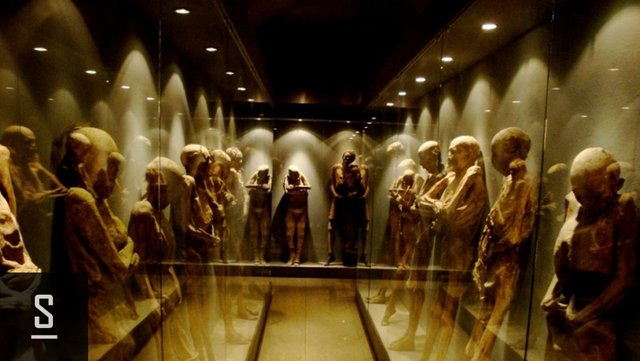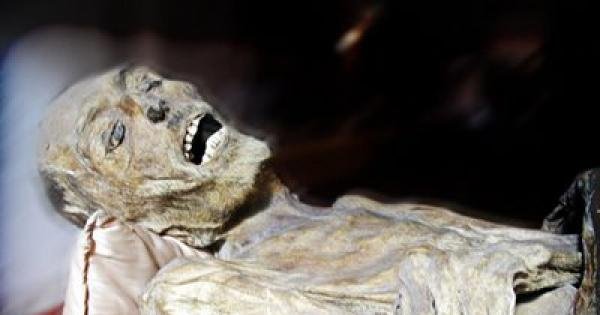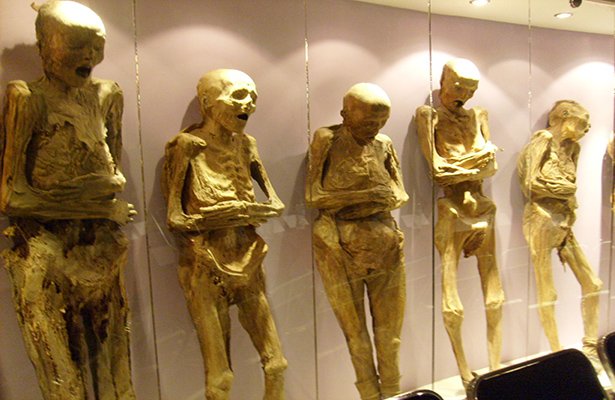Mummies of Guanajuato.

Egypt is not the only country that has interesting stories and exhibitions of mummies in the world. The city of Guanajuato, Mexico has a magical atmosphere thanks to the number of tombs and mausoleums it possesses. It’s the main attraction of the locality and it’s a must visit for those who love history and mystery.
The Mummy Museum in Guanajuato is an exhibition composed of 111 embalmed bodies of men, women and children that were found in the Santa Paula Municipal Pantheon, south of Cerro Trozado, Guanajuato.
In 1860, the city was hit by a cholera plague which killed a lot of people. Back then the deceased were buried in churches, but the number of corpses was so high they had to open crypts.
The museum was inaugurated on March 13, 1861, but it was still unfinished. The oldest body in the collection is the French physician Remigio Leroy, who was exhumed on June 9, 1865 in the niche 214 of the pantheon. In that year, the city begun to remove those corpses belonging to certain families that were not up to date with the payment of the niches.
At first, the catacombs were not ready to be visited, people went clandestinely to observe the mummies; an activity that was increasing due to the interest of the tourists, attracted by the curiosity and all the mysticism around the place.
Until 1979, about 1218 mummies were discovered in various parts of the city, of which only a few are exhibited. The exhibition also features an introduction video explaining what death means for Mexicans and how they recognize it, a history room about the origin of the museum, works of artists about the mummies, a room of traditional dresses, tragic deaths, urns, among others.
The difference between the mummies of Guanajuato and others around the world is that the preservation process of these bodies was completely natural. Today, it’s suggested that the phenomenon is due to the absence of water in the subsoil, coupled with the existence of nitrates, alum and salinity in the land.
The building was redesigned in 2007 and receives thousands of visitors annually. Only in 2015 over 600 thousand tourists came to observe these mummies. Many visitors come to investigate the reasons of these mummifications.

